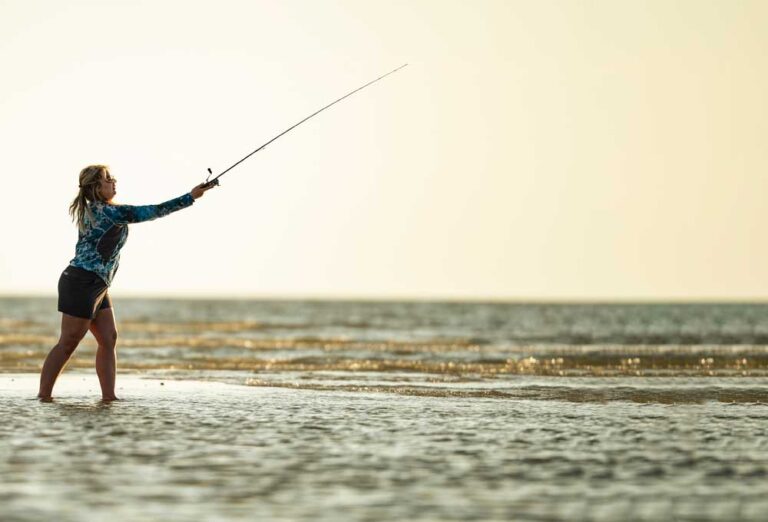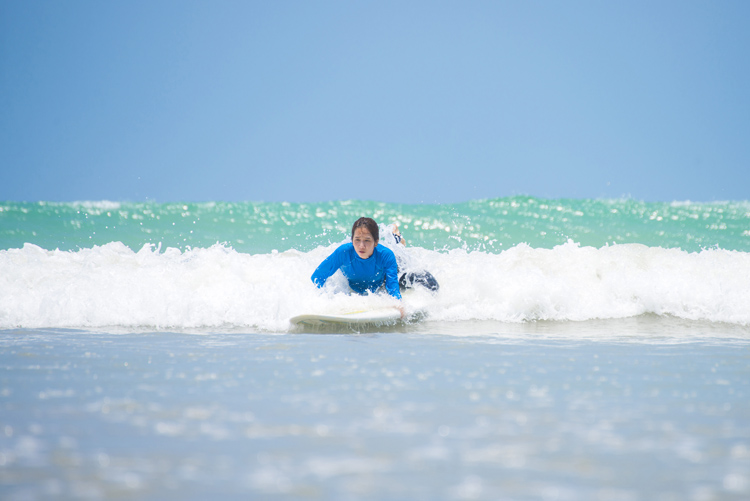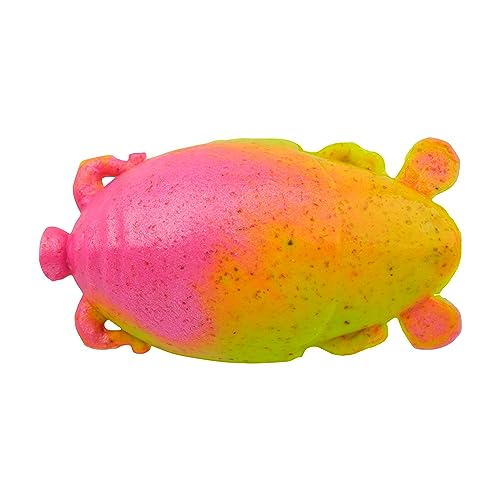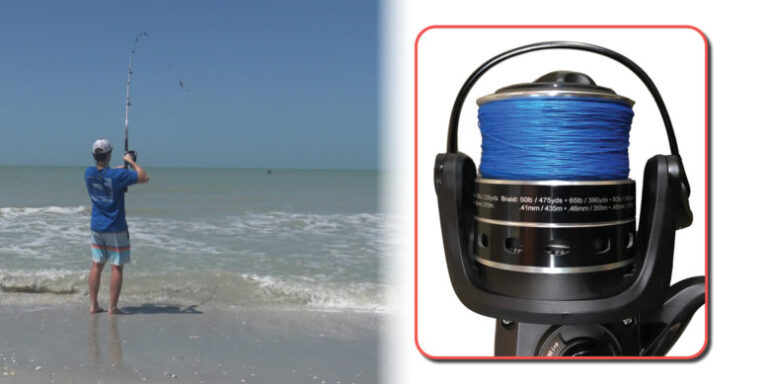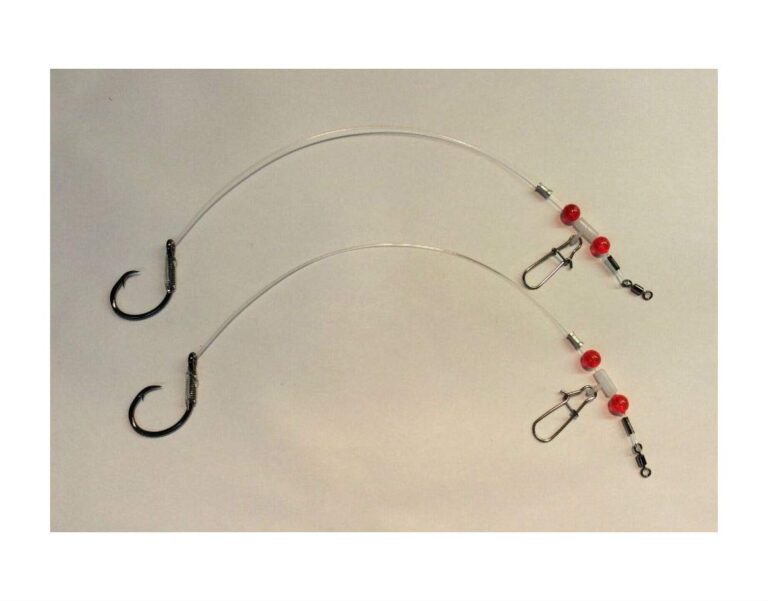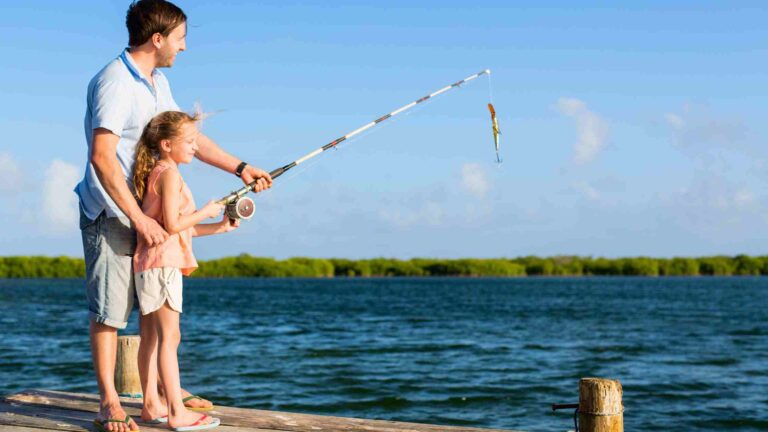To fish for surf perch, cast your baited hook into the surf and slowly retrieve it while keeping an eye on your line for any movement or bites. Surf perch are a popular target for anglers due to their abundance and strong fighting qualities.
They can be found along sandy beaches, where they forage for small crustaceans and other prey in the swash zone. Fishing for surf perch requires using light tackle and natural baits such as sand crabs, clams, shrimp, or squid. By paying attention to the tides, weather conditions, and choosing the right spot, you can increase your chances of hooking a surf perch.
Proper technique, including reading the surf and adjusting your presentation accordingly, is key to successful surf perch fishing.

Credit: www.floridasportsman.com
Understanding The Surf Perch Habitat
The surf perch, also known as the redtail surfperch, is a popular catch among anglers who enjoy surf fishing. These feisty fish can be found in the pacific coastal areas of north america, from california to oregon and washington. To increase your chances of success, it is important to understand the surf perch habitat and their behavior.
In this section, we will discuss how to identify surf perch, the best coastal locations to find trophy-sized surf perch, and the importance of tide and weather conditions. Let’s dive in!
Identifying Surf Perch
- Surf perch have a distinctive reddish color on their tails, hence the name “redtail surfperch.” This makes them easy to identify when they’re caught.
- They have a streamlined body shape, which allows them to navigate the turbulent surf without much effort.
- Adult surf perch typically measure between 8 to 12 inches in length, but they can grow up to 16 inches.
- Their dorsal fins have sharp spines, so be cautious when handling them.
Coastal Locations To Find Trophy-Sized Surf Perch
- Look for areas with rocky outcrops or jetties. These structures provide hiding places and food sources for surf perch.
- Sandy beaches with shallow troughs and holes are also prime feeding grounds for these fish.
- Estuaries and river mouths are another excellent spot to find surf perch, especially during incoming tides.
- Pay attention to underwater structures such as submerged rocks and kelp beds, as they attract surf perch.
Importance Of Tide And Weather Conditions
- The tide plays a crucial role in surf perch fishing. The best time to fish for surf perch is during the incoming or high tide, as this brings in fresh food and creates ideal feeding conditions.
- Calm weather conditions are more favorable for surf perch fishing. Windy or rough surf can make it challenging to cast and retrieve your bait.
- Overcast days are often more productive, as surf perch feel more secure in low light conditions.
Preferred Surf Perch Habitat And Behavior
- Surf perch are primarily found in surf zones, where waves break close to the shore.
- They prefer sandy or mixed sandy-gravel bottoms, where they can easily find food such as sand crabs, small clams, and marine worms.
- These fish are known to travel in schools, so if you catch one, there’s a good chance that others are nearby.
- Surf perch are opportunistic feeders, so it’s essential to experiment with different bait and presentation techniques to entice them.
Now that you understand the surf perch habitat and their behavior, you’ll be better equipped to target these exciting fish during your next surf fishing adventure. Remember to check the local regulations for bag limits and size restrictions and always practice catch-and-release to help preserve the surf perch population.
Happy fishing!
Fishing Gear And Techniques
Surf perch fishing is a thrilling and rewarding experience, but to make the most of your time on the beach, it’s essential to have the right fishing gear and techniques. From choosing the right rod and reel to understanding the best tackle and bait, here’s everything you need to know to increase your chances of catching trophy-sized surf perch.
Choosing The Right Fishing Rod And Reel For Surf Perch
When it comes to surf perch fishing, having the right fishing rod and reel can make all the difference. Here are some key points to consider:
- Use a medium to heavy spinning rod with a length between 7 and 10 feet for maximum casting distance and control.
- Opt for a reel with a smooth drag system and a high line capacity to handle the powerful runs of large surf perch.
- Look for a rod and reel combo that balances well together and feels comfortable in your hands.
- Consider the materials of the rod and reel, such as graphite or fiberglass, for durability and sensitivity.
Essential Tackle And Bait For Trophy-Sized Surf Perch
Having the right tackle and bait is crucial when targeting trophy-sized surf perch. Here are some essential items to include in your tackle box:
- Use a sliding sinker rig with a pyramid sinker to keep your bait anchored in the surf.
- Choose circle hooks in sizes 6 to 2/0, as they are more likely to hook the fish in the corner of the mouth, resulting in higher catch rates and better survival of released fish.
- Carry a variety of artificial lures, such as spoons, grubs, and soft plastic swimbaits, to experiment and find what the surf perch are biting.
- Stock up on sand crabs, small shrimp, and bloodworms as natural bait options that surf perch find irresistible.
Surf Fishing Techniques For Maximizing Your Catch
To increase your chances of success when surf fishing for perch, try these effective techniques:
- Fish during the incoming or outgoing tides when the surf perch are actively feeding in the shallows.
- Cast your bait or lure beyond the breaking waves and allow it to drift naturally with the current.
- Use a slow-retrieve method to imitate injured prey, enticing surf perch to strike.
- Vary your fishing spots along the beach to locate schools of surf perch, as they often move with the tides and currents.
- Be patient and observant, paying attention to subtle bites and changes in the surf’s movement.
Casting And Retrieval Techniques For Surf Perch Fishing Success
Having proper casting and retrieval techniques can greatly improve your surf perch fishing success. Here are some key points to keep in mind:
- Master the overhead cast or the sidearm cast to achieve the desired distance and accuracy.
- Keep a relaxed grip on the rod and follow through with a smooth casting motion, releasing the line at the right moment.
- As you retrieve your bait or lure, vary the speed and occasionally pause to simulate natural movement.
- Pay attention to the feedback from your line, as surf perch often give subtle strikes that can be detected by feeling for a slight hesitation or change in tension.
By choosing the right fishing rod and reel, stocking up on essential tackle and bait, employing effective surf fishing techniques, and mastering casting and retrieval, you’ll be well on your way to landing trophy-sized surf perch. So grab your gear, head to the beach, and enjoy the thrill of surf perch fishing like a pro.
Strategies For Catching Trophy-Sized Surf Perch
Fishing for surf perch can be an exciting and rewarding experience, especially when you set your sights on catching trophy-sized surf perch. These larger fish not only put up a good fight but also make for a memorable fishing adventure.
To help you in your pursuit of these impressive specimens, we’ve put together some effective strategies and tips to improve your chances of success.
Best Times Of Day And Seasons For Surf Perch Fishing
- Early mornings and late afternoons tend to be the best times to target surf perch. These are the times when the fish are most active and feeding close to shore.
- Spring and fall are generally the prime seasons for surf perch fishing. During these times, the fish are more abundant and can be found in shallower water.
- It’s worth noting that surf perch can be caught year-round, but their behavior and feeding patterns may vary depending on the season and location.
Lure Selection And Effective Bait Presentation
- Using artificial lures such as grubs, spoons, or soft plastics can be highly effective for targeting trophy-sized surf perch. The key is to choose lures that resemble the natural prey of these fish.
- Opt for lures in colors that mimic sand crabs, small shrimp, or other common prey items found along the shoreline.
- When presenting your bait, consider casting slightly upstream and allowing it to drift naturally with the current. This technique can attract the attention of surf perch and trigger their predatory instincts.
Surf Fishing Tips For Targeting Trophy-Sized Surf Perch
- Look for areas with a combination of sandy bottoms and rocky structures. These areas tend to attract surf perch as they provide both food and cover.
- Pay attention to the waves and tides. Fish tend to congregate in areas where the waves break, as this is where food and nutrients are churned up.
- Experiment with different retrieve speeds and techniques. Sometimes a slow and steady retrieve can entice a bite, while other times a more erratic retrieve may be more effective.
Fishing Methods And Rigs For Surf Perch Success
- A basic setup for surf perch fishing includes a medium-weight spinning rod paired with a reel spooled with 8-12 lb test line.
- The carolina rig is a popular and effective setup for surf perch. It consists of a sliding sinker, swivel, leader line, and a hook. This rig allows the bait to move naturally with the current.
- Another option is the high-low rig, which involves tying multiple hooks onto the leader line at different intervals. This setup allows you to present multiple baits at different depths.
By following these strategies, tips, and techniques, you’ll be better equipped to target and catch trophy-sized surf perch. Remember to always check local regulations and obtain any necessary permits before heading out on your fishing adventure. So grab your gear, hit the beach, and prepare yourself for a thrilling surf perch fishing experience.
Conclusion
To wrap up, catching surf perch can be an exciting and rewarding experience for both seasoned anglers and beginners alike. By following the tips outlined in this guide, you can increase your chances of success in your next surf perch fishing adventure.
From selecting the right bait and tackle to understanding the behavior and feeding patterns of these elusive fish, every step plays a crucial role in your fishing success. Remember to choose the right location, pay attention to tides, and experiment with different techniques to find what works best for you.
As with any fishing activity, patience and persistence are key. So, get out there, enjoy the beauty of the ocean, and reel in some surf perch. Happy fishing!

